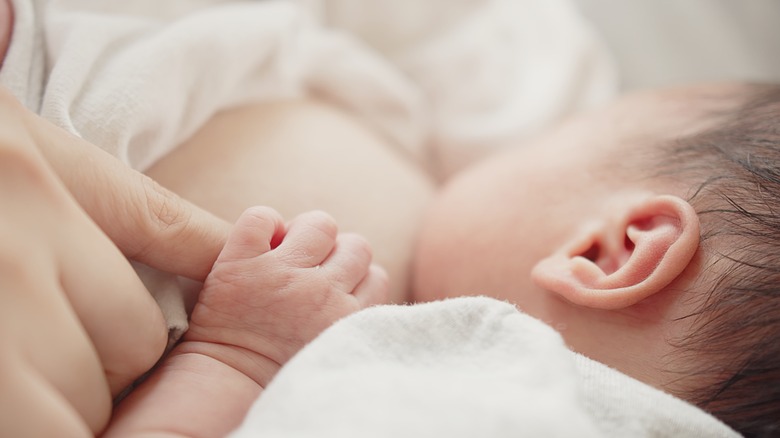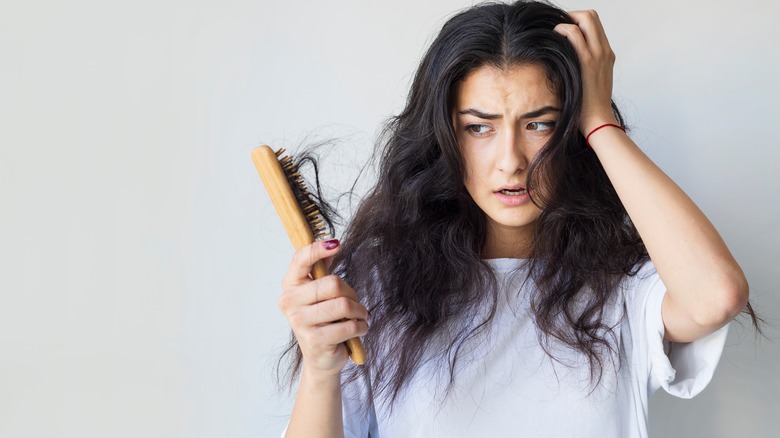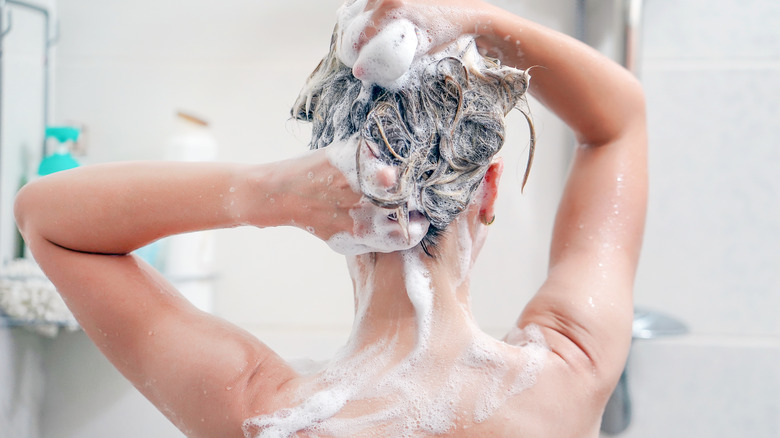Is It Normal To Lose Hair When Breastfeeding?
Breastfeeding is a natural process that promotes bonding between a mother and her baby. The skin-to-skin contact that results from a mother nursing her baby can create strong feelings of trust and affection. It can also help reduce stress, promote better sleep, and improve your baby's physical and emotional health, according to the experts at WebMD. In addition, breastfeeding can help your baby even beyond infanthood, as the bonding experience created by breastfeeding can improve social experiences for children later in life.
As important as breastfeeding is for new moms and their babies, it can also come with some side effects. These can include leaking, sore nipples, and pain during breastfeeding. In some cases, nursing mothers can also experience postpartum depression. On top of these symptoms is a potentially more distressing side effect, at least from a cosmetic perspective, with some breastfeeding women reporting hair loss. Here's what we know.
Your hormones are to blame
Although women who are breastfeeding may indeed lose hair, the process of breastfeeding itself is not the cause, according to the Australian Breastfeeding Association. The biggest reason that women tend to lose hair after giving birth is because of the shift in hormones that occurs during pregnancy (via Wellbel). During pregnancy, estrogen levels spike, which can cause an expectant mother's hair to become thicker and fuller. Once the baby is born, however, those estrogen levels will drop back to where they were before pregnancy. When that happens, women can experience hair loss up to several months after delivery.
In general, the average person has anywhere from 80,000 to 120,000 hairs on their scalp and tends to shed around 100 hairs per day at maximum, as per the Cleveland Clinic. Postpartum women find themselves in what is known as the telogen or resting phase of hair growth, losing more than 100 hairs daily. The good news is that this hair loss tends to taper off within six months or so, returning to the anagen or active phase. By the time their baby hits their first birthday, most women typically have returned to normal hair growth.
Take care of your hair
Fortunately, there are steps that women can take to help manage hair loss in the months after giving birth (via Medical News Today). For starters, using strong, volumizing shampoo and conditioner designed for finer hair can be beneficial. In addition, women should not cover their entire scalp with conditioner due to the risk of weighing it down. Instead, conditioner should only be applied to the ends of the hair.
A healthy, balanced diet is also important for mitigating the effects of postpartum hair loss (via Wellbel). Healthy hair benefits from a strong dose of vitamins like B12, A, and D. In addition to eating a diet rich in these vitamins, you can also turn to supplements to help give your body a vitamin boost and keep your hair as healthy as possible. If your hair loss continues to be an issue, or if you feel concerned about what may be causing it, talk to your doctor to determine whether or not your hair loss is part of the postpartum process or something that warrants a closer look.



